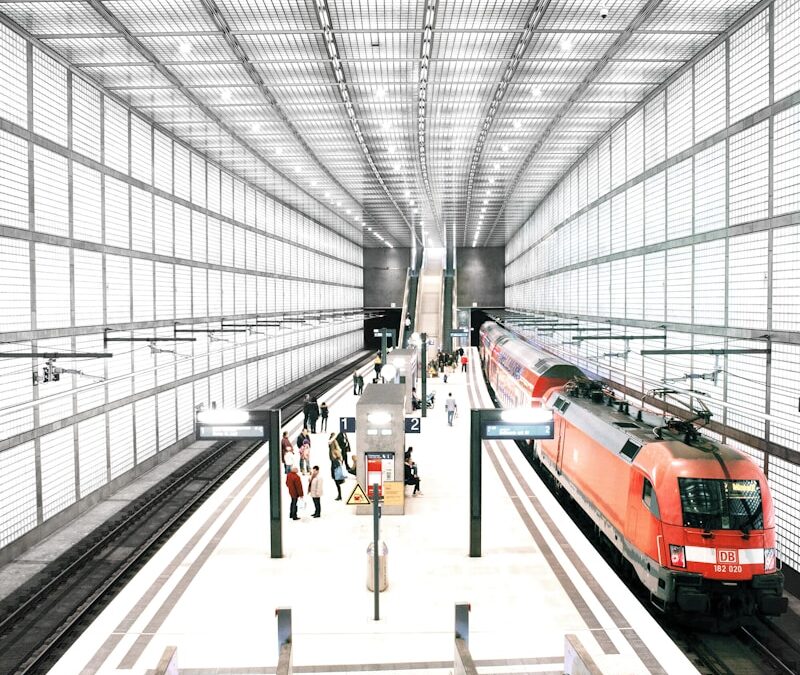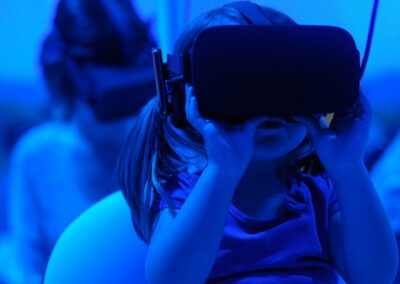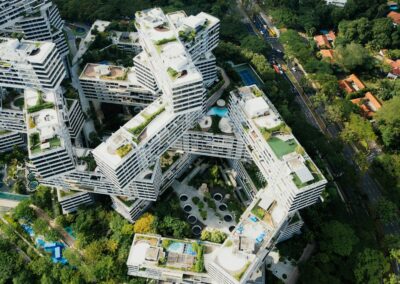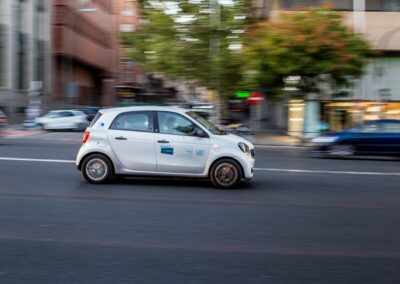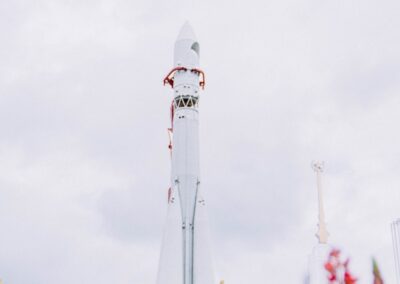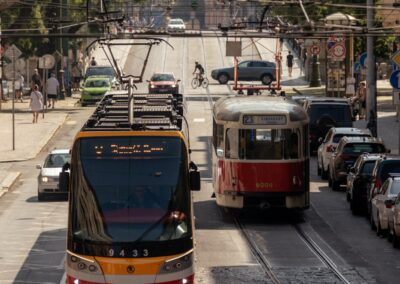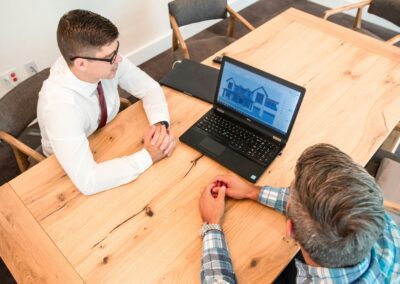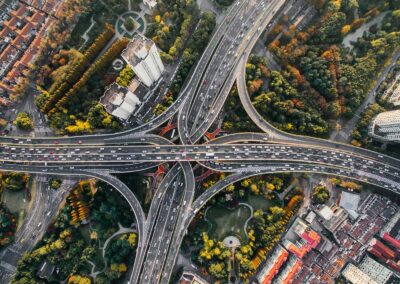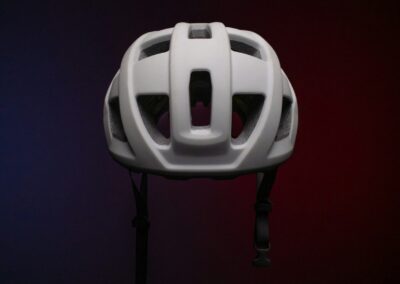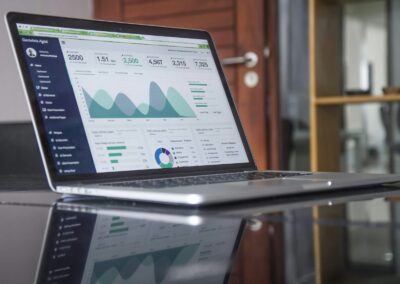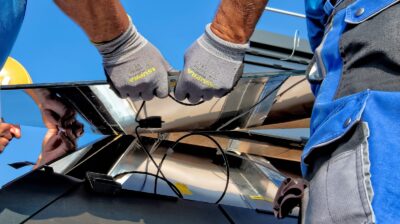The Role of Digital Twins in Urban Development
Digital Twins Transforming Urban Planning
Digital twins for urban planning are revolutionizing how cities are designed and developed, offering a dynamic approach to integrating citizen engagement and participation. Digital twins are sophisticated virtual models that replicate the physical aspects of urban environments. By simulating real-world scenarios, these digital replicas allow city planners and decision-makers to visualize the impact of various urban development strategies before implementation.
In regions such as Saudi Arabia and the UAE, where rapid urbanization and innovative city planning are prominent, digital twins provide a crucial tool for effective urban management. For instance, cities like Riyadh and Dubai can leverage these digital models to test new infrastructure projects, assess traffic patterns, and explore environmental impacts with greater precision. This proactive approach ensures that urban development aligns with both the needs of the community and the strategic goals of the city.
Moreover, digital twins enhance the ability to forecast future urban trends and challenges. By analyzing historical data and current conditions within the virtual model, city planners can anticipate issues such as traffic congestion, pollution, and resource management, enabling more informed decision-making and strategic planning.
Facilitating Citizen Participation through Digital Twins
Digital twins for urban planning significantly enhance citizen engagement by making urban development processes more transparent and interactive. Traditionally, public involvement in urban planning has been limited to consultations and feedback sessions. Digital twins, however, provide a more immersive and participatory approach, allowing citizens to explore and interact with virtual models of their cities.
Through interactive platforms and virtual reality experiences, residents can visualize proposed developments and their potential impacts. This hands-on engagement helps citizens better understand complex planning proposals and fosters a sense of ownership and involvement in the decision-making process. For instance, citizens in Dubai could use digital twins to navigate through proposed changes in their neighborhoods, offering feedback and suggestions directly through the platform.
Additionally, digital twins can facilitate real-time feedback collection and integration. By enabling citizens to submit their observations and concerns directly within the digital model, city planners can quickly address public input and make necessary adjustments to their plans. This iterative approach to planning ensures that urban development projects are more responsive to the needs and preferences of the community.
Integration with Emerging Technologies
The potential of digital twins for urban planning is further amplified when integrated with emerging technologies such as artificial intelligence (AI), blockchain, and the metaverse. AI algorithms can analyze data from digital twins to generate predictive insights and optimize urban planning strategies. For example, AI can forecast the impact of new developments on traffic flow or environmental conditions, allowing planners to make more informed decisions.
Blockchain technology enhances the transparency and security of data used in digital twins. By creating an immutable record of planning data and citizen feedback, blockchain ensures the integrity of the information and builds trust in the planning process. This is particularly valuable in regions where data accuracy and accountability are critical for successful urban development.
The metaverse offers immersive experiences for exploring digital twins. Virtual environments within the metaverse can provide citizens with interactive simulations of future urban developments, enabling more engaging and comprehensive public consultations. This immersive approach helps residents visualize how changes will affect their daily lives and fosters greater community involvement in urban planning.
Strategic Benefits for Cities and Citizens
Enhancing Urban Efficiency and Sustainability
Implementing digital twins for urban planning delivers substantial benefits in terms of urban efficiency and sustainability. By simulating various planning scenarios, cities can identify and implement solutions that optimize resource use, reduce waste, and minimize environmental impacts. For example, digital twins can model the effects of green infrastructure, such as parks and green roofs, on urban heat islands and air quality.
In rapidly growing cities like Riyadh and Dubai, where sustainability is a key focus, digital twins offer a valuable tool for achieving environmental goals. By integrating data on energy consumption, water use, and emissions into the digital model, planners can develop strategies that promote sustainable development and enhance the quality of urban life.
Additionally, digital twins enable cities to optimize infrastructure maintenance and management. By monitoring the condition of physical assets in real-time, digital twins help identify potential issues before they become critical, allowing for timely maintenance and reducing downtime. This proactive approach enhances the reliability and efficiency of urban systems, contributing to overall city resilience.
Empowering Leadership and Management in Urban Development
Successful integration of digital twins for urban planning requires strong leadership and effective project management. Leaders must champion the use of digital twins and ensure that their implementation aligns with the city’s strategic objectives. This involves fostering a culture of innovation and collaboration, where stakeholders are encouraged to embrace new technologies and methodologies.
Effective project management is crucial for overseeing the development and deployment of digital twin solutions. Project managers must coordinate between various teams, manage resources, and ensure that projects are delivered on time and within budget. By leveraging digital twins, project managers can improve planning accuracy, streamline workflows, and enhance overall project outcomes.
Additionally, executive coaching services can support leaders in developing the skills needed to drive successful urban transformation. Coaching can enhance strategic thinking, decision-making, and stakeholder engagement, enabling leaders to effectively guide their cities through the adoption and implementation of digital twin technology.
The Future of Digital Twins in Urban Planning
The future of digital twins for urban planning holds immense potential as technology continues to evolve. As digital twins become more advanced, they will offer even more accurate simulations and predictive capabilities, further enhancing urban planning processes. This advancement will enable cities to better address emerging challenges and capitalize on new opportunities.
Furthermore, the integration of digital twins with other technologies, such as the Internet of Things (IoT) and 5G, will enhance their capabilities. Real-time data from IoT sensors and high-speed connectivity will provide more detailed insights into urban systems, allowing for more precise simulations and optimizations.
In conclusion, digital twins are transforming urban planning by fostering greater citizen engagement and participation. Through interactive simulations and real-time feedback, digital twins enable more transparent and inclusive decision-making processes. As technology continues to advance, digital twins will play an increasingly vital role in shaping the future of urban development, particularly in dynamic and rapidly growing cities like Riyadh and Dubai.
—
#DigitalTwins #UrbanPlanning #CitizenEngagement #SmartCities #AI #Blockchain #Metaverse #GenerativeAI #ModernTechnology #BusinessSuccess #LeadershipSkills #ProjectManagement #SaudiArabia #UAE #Riyadh #Dubai

